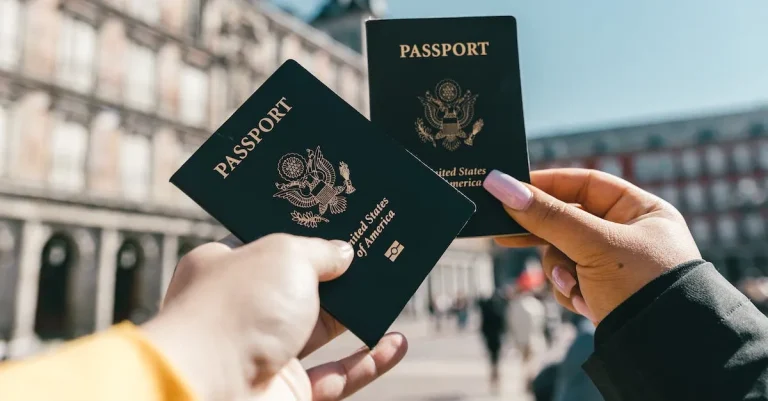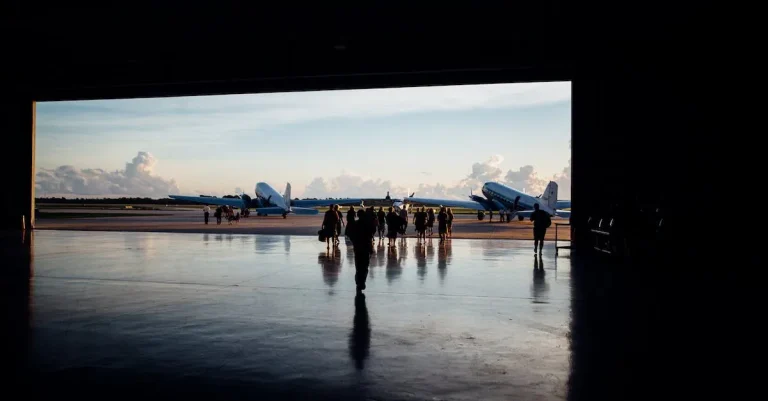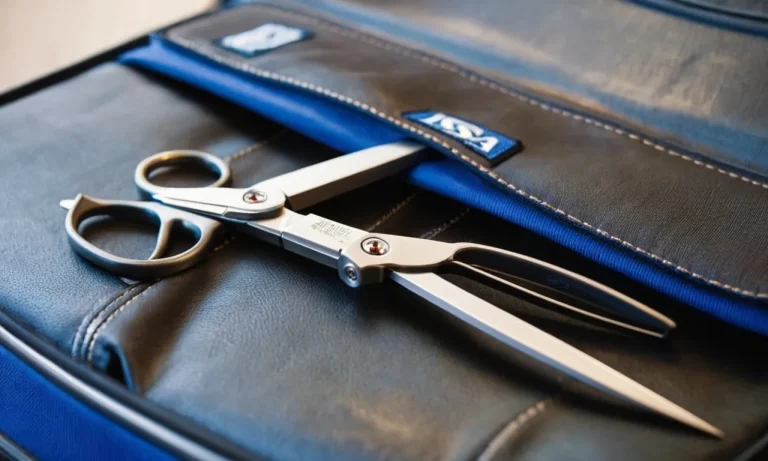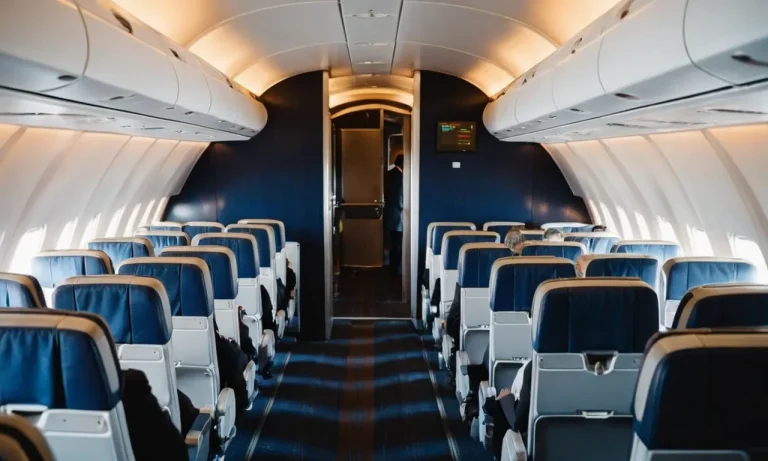The arrival of a newborn brings excitement along with logistical questions, especially for families with upcoming travel plans. If you need to add an infant to a flight you’ve already booked, don’t worry – it can be done!
If you’re short on time, here’s a quick overview: Inform the airline as soon as possible, be prepared to pay a fee or tax for lap infants, and have the required documents ready for travel.
Notifying the Airline About Your Infant
Adding infants to reservations
When you are planning to travel with an infant, it is crucial to notify the airline about your little one.
Most airlines have specific policies and procedures in place for traveling with infants, and it is important to follow them to ensure a smooth and hassle-free journey.
To add an infant to your flight reservation, you can either do it online while booking your ticket or contact the airline’s customer service department.
When adding an infant to your reservation, you will typically be required to provide certain information such as the infant’s name, birthdate, and any special requirements they may have.
It is also essential to ensure that you have the necessary documentation for your infant, such as a valid passport or birth certificate, depending on the destination.
Applicable fees and ticket taxes
It’s important to note that adding an infant to your flight reservation may incur additional fees and ticket taxes.
These fees vary depending on the airline and the type of ticket you have purchased. Some airlines may offer discounted fares for infants, while others may charge a percentage of the adult fare.
Additionally, there might be taxes or surcharges applicable to the infant’s ticket.
It is advisable to check the airline’s website or contact their customer service to get detailed information about the fees and taxes associated with adding an infant to your reservation.
This will help you plan your travel budget accordingly and avoid any last-minute surprises.
Booking confirmation timeline
Once you have added the infant to your flight reservation and completed the booking process, you should receive a booking confirmation email or ticket.
It is essential to review this confirmation carefully to ensure that all the details, including the infant’s information, are accurate.
It is recommended to double-check the booking confirmation timeline to ensure that your reservation is confirmed and secure.
Some airlines may have specific deadlines for confirming infant reservations, and failing to do so within the specified timeframe may result in the cancellation of the infant’s ticket.
If you have any concerns or questions regarding your booking confirmation or the timeline for confirming the infant’s reservation, don’t hesitate to reach out to the airline’s customer service for assistance.
Infant Seating Policies and Options
Lap infant rules and regulations
When it comes to flying with an infant, most airlines have specific rules and regulations regarding lap infants. A lap infant refers to a child under the age of two who will be seated on an adult’s lap during the flight.
While this option may seem convenient, it’s important to note that lap infants do not have their own seat and must be held securely by the accompanying adult throughout the flight.
It’s worth mentioning that certain safety restrictions may apply to lap infants, such as the use of a safety belt or an infant safety vest during takeoff, landing, and turbulent conditions.
These regulations are in place to ensure the safety of both the infant and the adult holding them.
It’s important to familiarize yourself with these rules before your flight to ensure a smooth and hassle-free travel experience.
In-flight Amenities for Infants
Availability of baby food, formula
When flying with an infant, it’s important to ensure that you have all the necessary supplies to keep your little one comfortable and well-fed throughout the journey.
Many airlines understand the needs of parents and offer amenities such as baby food and formula on board.
This can be a great relief for parents who may be worried about carrying enough supplies for their baby during the flight.
It’s important to note that availability of baby food and formula may vary depending on the airline and the specific flight. Some airlines provide pre-packaged baby food and formula, while others may offer options to warm up bottles or jars of baby food.
It’s always a good idea to check with your airline in advance to ensure that they can accommodate your infant’s feeding needs.
For more information on airline policies regarding baby food and formula, you can visit the official website of the airline you are flying with.
This will give you a clear idea of what to expect and help you better prepare for your journey.

Diaper-changing stations
Changing diapers on a plane can be a challenging task, especially when you’re limited on space. However, many airlines have recognized this struggle and now provide dedicated diaper-changing stations in the restrooms.
These stations are equipped with a changing table and often have a space to dispose of used diapers hygienically.
Having a designated area for diaper changes can make the process much more convenient for parents, allowing them to take care of their baby’s needs without any hassle.
For more information on the availability and location of diaper-changing stations, you can refer to the airline’s official website or contact their customer service for assistance.
Breastfeeding accommodations
For breastfeeding mothers, finding a comfortable and private space to nurse their baby during a flight is essential. Airlines understand this need and have made efforts to provide accommodations for breastfeeding mothers.
Many airlines offer privacy curtains or designated seating areas where mothers can breastfeed their infants without any disturbance. These areas are designed to provide a calm and comfortable environment for both the mother and the baby.
If you prefer a more private space, some airlines also offer special breastfeeding rooms or lounges in their airport terminals.
These rooms are equipped with comfortable seating, electrical outlets for breast pumps, and other amenities to ensure a stress-free breastfeeding experience.
It’s important to note that breastfeeding is protected by law in many countries, and airlines are generally supportive of mothers who choose to breastfeed their infants during the flight.
However, it’s always a good idea to familiarize yourself with the specific policies of the airline you are flying with to ensure a smooth and comfortable journey.
For more information on breastfeeding accommodations provided by airlines, you can visit their official websites or contact their customer service for assistance.
Required Documents for Infants
When adding an infant to your flight reservation, there are certain documents you will need to have in order to comply with airline and government regulations. Here are the key documents you should be aware of:
Proof of Age
Most airlines require proof of age for infants traveling on a flight. This can be in the form of a birth certificate or a passport. It is important to check with your airline beforehand to determine their specific requirements.
Keep in mind that some airlines may have age restrictions for infants traveling, so it’s always a good idea to check their policies.
Passports and Visa Requirements
If you are traveling internationally with your infant, they will need a passport. The process for obtaining a passport for an infant is similar to that of an adult, but there may be additional requirements, such as providing both parents’ consent.
Additionally, depending on the destination, your infant may also need a visa. It is crucial to research the entry requirements for your specific destination and ensure that you have all the necessary documents in order.
Health and Immunization Forms
When traveling with an infant, you may be required to provide health and immunization forms. These forms usually contain information about the infant’s current health status, vaccinations, and any specific medical conditions or medications they may have.
It is important to consult with your pediatrician and check the requirements of your destination country to ensure you have all the necessary paperwork.
Keep in mind that the requirements for infants traveling can vary depending on the airline, destination, and specific circumstances.
It is always recommended to check with the airline and relevant government authorities well in advance of your trip to ensure that you have all the required documents and meet all the necessary regulations.
Conclusion
While adding an infant to existing flight plans takes some preparation, airlines have policies in place to accommodate families. Notify the carrier early, bring proper documents, and pack smartly.
The inconveniences of infant travel are offset by the joy of introducing your little one to new places and experiences.






